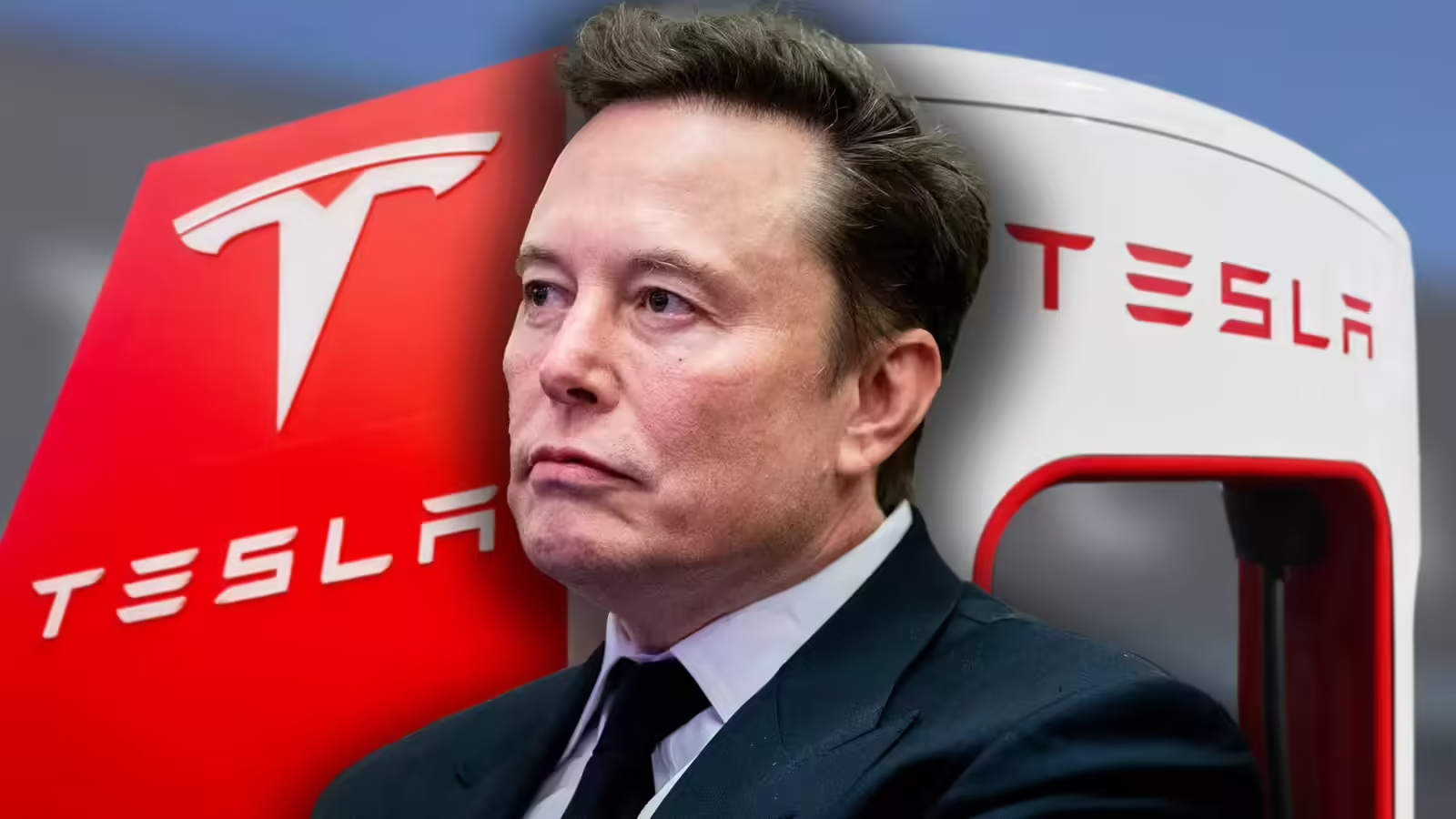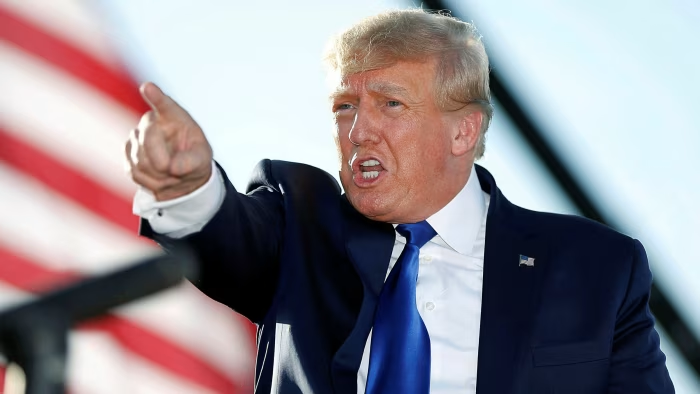Elon Musk is fighting back hard after donating $250 million to elect Trump, trying to save Tesla’s billions

Elon Musk donated more than $250 million to help elect Donald Trump. In return, he got a sweeping new bill that could cost Tesla billions of dollars in lost revenue.
Trump’s “big, beautiful bill” directly threatens a core Tesla income stream by dismantling the emissions credit programs that have allowed the EV manufacturer to generate billions in profit. The timing couldn’t be worse—Tesla is already facing plunging sales and the loss of EV tax credits. It’s no surprise Musk lashed out.
As the bill was being fast-tracked through Congress, Musk called it an “abomination” and warned lawmakers that anyone who supported it could become a target in upcoming primaries. He even hinted at launching his own political party. Trump, unfazed, fired back: “Without subsidies, Elon would probably have to close up shop and head back home to South Africa.”
The fallout has escalated into a very public rift, with Musk’s business interests now hanging in the balance, and Republican legislators caught between the president and one of the country’s most powerful CEOs.
“All family fights are ultimately about money,” said Trevor Traina, a San Francisco-based tech entrepreneur and former Trump ambassador to Austria. “This one seems to be no different … Billions in subsidies versus hundreds of millions in primaries.”
Though Musk has framed his criticism around the national deficit, Tesla’s bottom line is clearly a major motivator. The new bill eliminates all three of the U.S.’s emissions credit systems: the EPA’s greenhouse gas credit scheme, California’s program tied to EV and hybrid sales, and most significantly, the federal corporate average fuel economy (CAFE) standards.
These programs penalize automakers who fail to meet fuel efficiency targets and reward those like Tesla—who produce zero-emission vehicles—with credits they can sell. Those sales have become increasingly vital.
In Q1, Tesla made $595 million from credit sales—a 35% jump—while its actual net income was $409 million. Without those credits, Tesla would’ve posted a loss. For all of 2024, regulatory credit revenue hit $2.8 billion, up from $1.8 billion in 2023, making up 39% of Tesla’s $7.1 billion net income. Since 2015, it has made over $11 billion from this system.
But Trump’s bill sets CAFE fines to zero. People close to Tesla say this could stop traditional carmakers from buying credits altogether. “If there’s no penalty for cheating, there’s no reason to buy compliance credits,” said Dan Becker, director of the Safe Climate Transport Campaign at the Center for Biological Diversity. “I’m not sure how costly these [changes] will be compared to the damage that Musk did to Tesla by becoming Trump’s Tweedle Dee and a pariah.”
Tesla doesn’t disclose its U.S. vs international credit income, but insiders estimate around 75% of it comes from the U.S. Though some credit contracts are locked in for years, many have clauses that allow termination if laws change—something now being evaluated.
There’s still opportunity abroad. Tesla recently signed an EU credit “pooling” agreement with Stellantis, Ford, Mazda, Subaru, and Toyota. UBS analysts estimate it could yield over €1 billion. Still, in the U.S., there’s no revival of the federal credit system in sight as long as Trump is in office. California is already suing the administration over its attempt to dismantle its credit program, where Tesla holds the largest balance.
“There will be some level of credit trading until there is certainty … [but] the bottom has dropped out of the market long-term,” said a person at Tesla. “Trump has done it so fast and with such ferocity that the entire programmes might just go away.”
But it’s not just about credits. Tesla also manufactures its own batteries, operates 2,600+ U.S. EV charging stations, and produces solar roofing and storage systems. Nearly all these businesses relied on tax credits or federal support. Now, with the exception of energy storage subsidies, much of that support is vanishing. The upcoming removal of the $7,500 EV tax credit for new leases and purchases in September is particularly damaging.
Trump has also floated having Musk’s own federal department—DOGE, the Department of Government Efficiency—pull Tesla’s and SpaceX’s contracts. Tariffs and escalating trade war threats against China could further choke Tesla’s material supply chain.
“This is terrible policy and a devastating blow for Tesla’s bottom line,” said a former Tesla executive. “It’s not just Cafe in a vacuum — it’s everything together: tariffs, the $7,500 consumer credit, manufacturing tax credits, charging credits and solar residential credits.” “Elon has finally woken up to this, but talk about a day late and a dollar short,” they added.
Even with Musk’s massive campaign war chest, his power to strike back now seems limited. He exited DOGE in May, and his feud with Trump intensified last month over the tax bill and trade tensions.
Still, his public attacks continued as the bill faced its final congressional vote. “Anyone who voted for ‘the biggest debt increase in history should hang their head in shame’ and ‘will lose their primary next year if it is the last thing I do on this Earth,’” Musk posted.
Only a handful of Republicans joined Musk’s resistance. Rep. Thomas Massie, who voted no, publicly thanked Musk for his “financial assistance to continue my mission as an independent voice.” Yet 50 of 53 GOP senators voted for the bill, with Vice President JD Vance casting the tiebreaker. Many in Musk’s own business circle backed the bill as well, citing personal tax relief.
“Preventing the tax hikes is absolutely essential,” said investor Keith Rabois, who with husband Jacob Helberg donated over $2 million to Trump’s campaign. Helberg has been nominated by Trump for a top State Department position.
Now that the bill has cleared Congress and landed on Trump’s desk, the balance of power in this feud seems clear. “I have endless respect for Elon,” Traina said, “but I think Trump carries the bigger stick here.”
Note to our readers: This article draws on Tesla’s official Q1 2025 Update, reporting a 71% net income drop and $600 million in regulatory credit sales. It also references California’s ZEV Credits Dashboard confirming Tesla’s compliance with emission rules.



